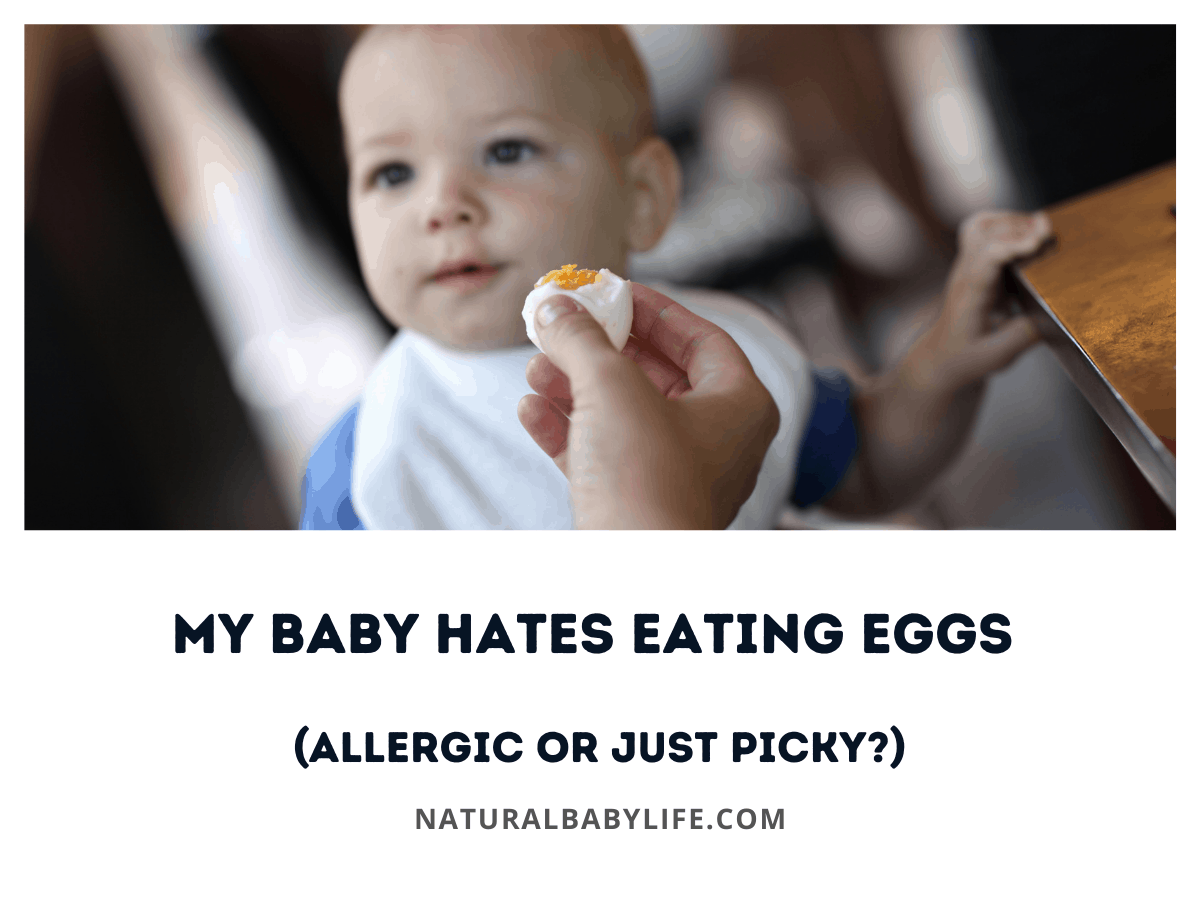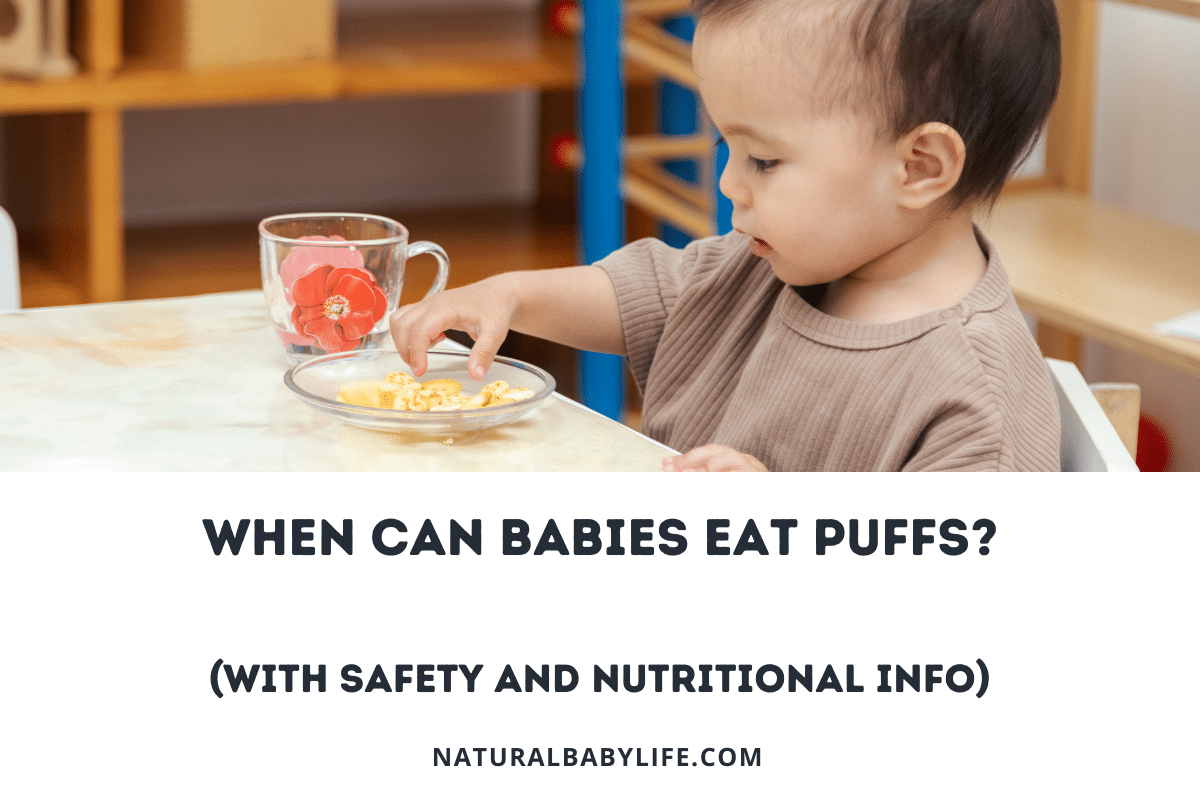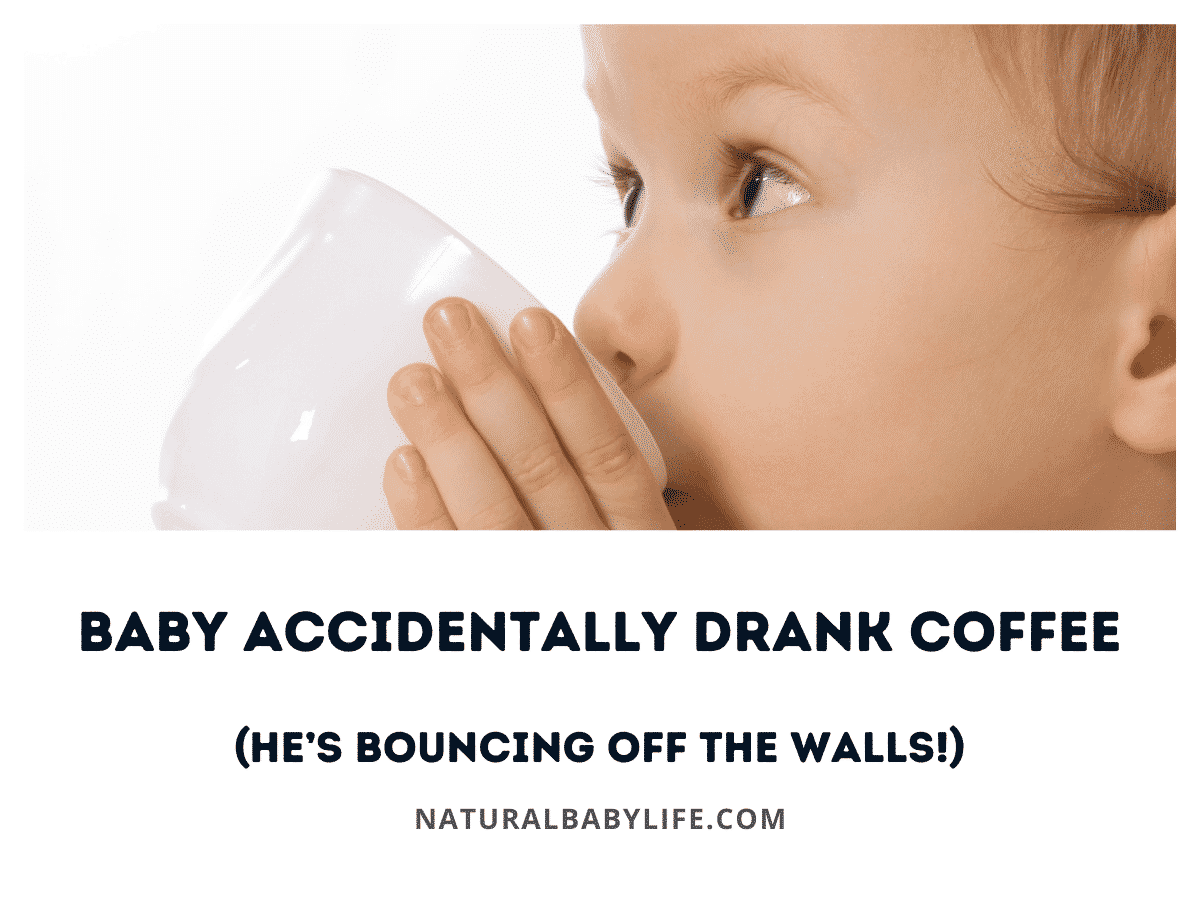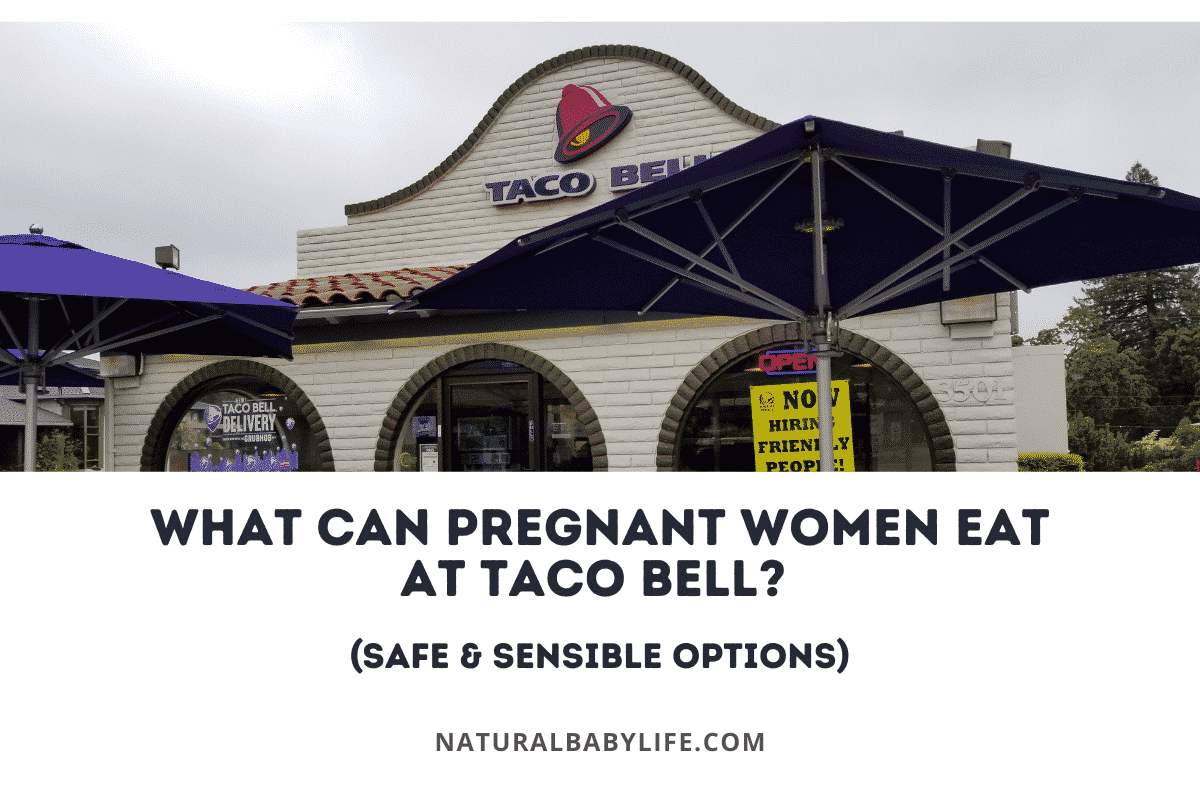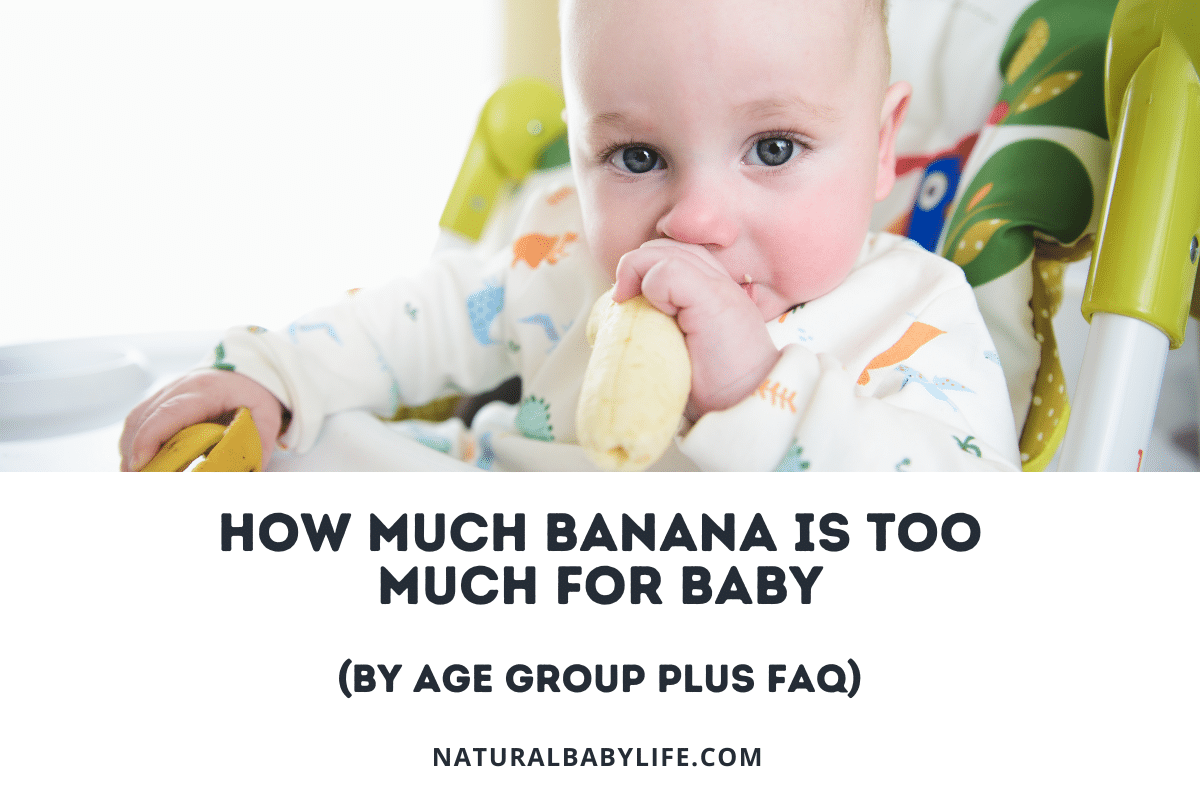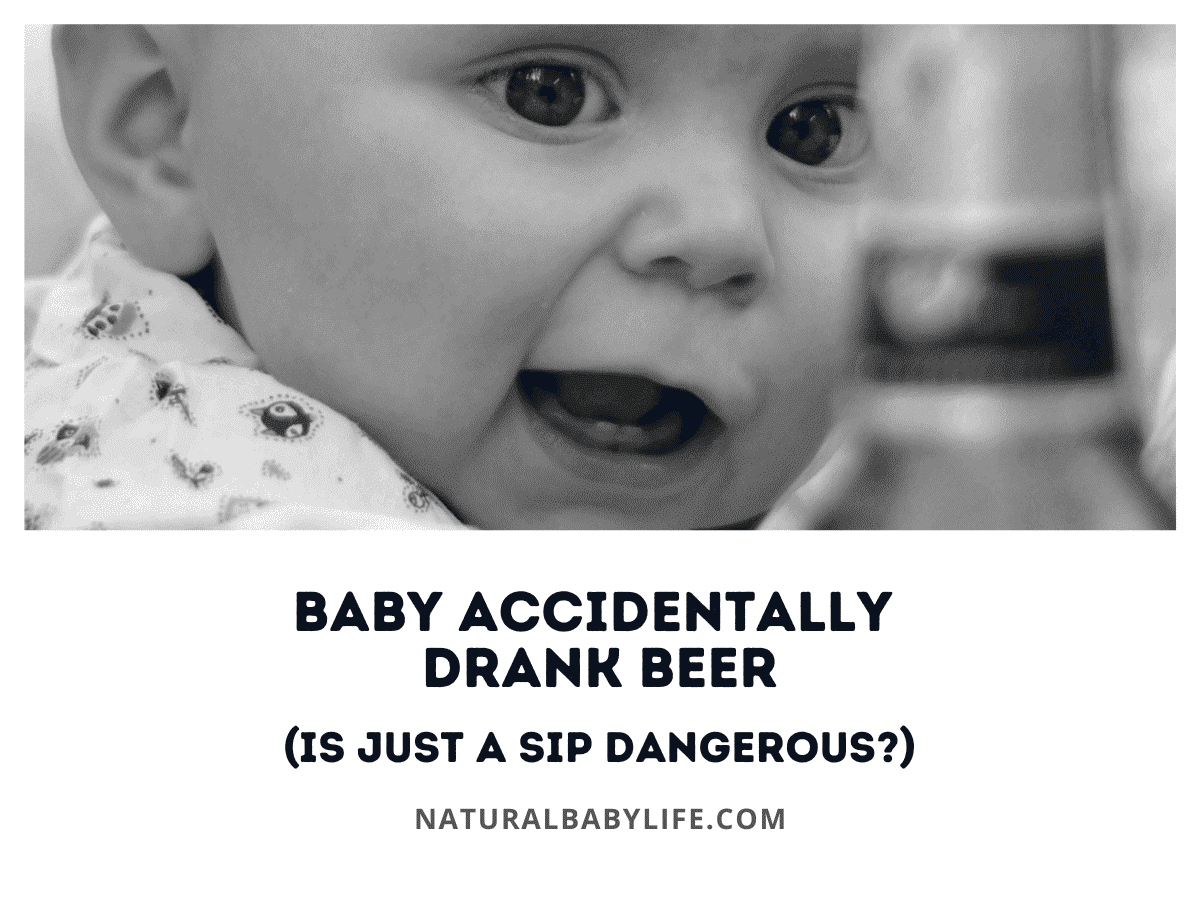Your baby can now eat solids. You try giving them eggs, but it doesn’t go over well. What does this mean?
It is common for a baby to hate the taste of eggs but if your baby has gas or diarrhea after eating eggs it could signal a food sensitivity or allergen. Try preparing eggs in different ways, adding them to foods your baby likes, or let some time pass and try to give your baby eggs again later to help them start to enjoy the flavor and texture.
Let’s read ahead to see if your child has an allergy or is just not a fan of eggs.
Table of Contents
Why doesn’t my baby like eating eggs?
When introducing your baby to solid foods, take it slowly and go one food at a time. Solid foods, including all parts of the egg, can be introduced around 6 months of age.
If you’re ready to give your baby eggs, you can either start with hard boiled or scrambled. Generally, people young and old like eggs, but your baby may spit them out or refuse to eat them at first.
Reasons your baby might not like eggs:
- You have a picky eater. Some babies are really picky, especially when they are just starting solids because they are so used to the liquid diet of formula or breast milk. Especially in the beginning, texture is a crucial element to your baby’s enjoyment of a meal and sometimes they don’t like eggs (in any preparation).
- Your baby might have a food sensitivity. Sensitivity to eggs can be common and cause digestive issues for the baby including gas and nausea. Babies will usually grow out of it in a year or two.
- It’s possible your baby is allergic to eggs. Four out of 100 children have a food allergy, and eggs are one of the top eight allergens that make up 90% of allergic reactions in children. Children will usually grow out of them up to age 5, but sometimes it can go into teenage or adult years.
When can babies start eating eggs?
Babies can start being introduced to solid foods at around six months. Although some parents prefer to start their little ones exclusively on purees, babies are capable of eating and digesting some soft foods such as eggs around the same time they start getting their first teeth in.
Your baby may be ready to start on solid foods if she can sit without support and hold her head upright and steady. It would also be smart to mention your plans at your baby’s six-month checkup and get your pediatrician’s approval.
There is no particular way to bring eggs into the diet, but the general consensus seems to be starting with one yolk. You can cook it and mash it in with pureed foods. If they are breastfeeding, you can also try mixing with breastmilk. At age 1, you can mix with cow milk. Around age 1, you can try doing the whole egg.
Can babies be allergic to eggs?
You probably know that babies can have the same allergies as adults with soy, wheat, peanuts, and shellfish at the top of the list, but did you know they can be allergic to milk and eggs as well?
Doctors used to recommend waiting until babies were at least a year old before introducing allergens to prevent reactions, but in the past few years, the opposite view is gaining traction.
Up to 2% of children will develop an allergy to eggs, although most of them will outgrow the allergy by the time they’re five. The part of the egg with the allergy-causing proteins is the white, so be sure to start with the yolk.
When introducing solid foods to your baby, the rule of the thumb is the four-day wait. Let them try the new food, then wait four days to see if there are any reactions. If not, they can start eating it more often.
How to identify an egg allergy
Signs that your baby may be allergic to eggs include:
- Hives, swelling, eczema, or flushing (sudden red patches or whole areas of the skin turning red due to open blood vessels)
- Diarrhea, nausea, vomiting, or pain
- Itching around the mouth
- Wheezing, runny nose, or trouble breathing
- Rapid heartbeat, low blood pressure, and heart issues
How severe the reaction is can depend on the amount of the allergen consumed and the severity of the allergy.
The worst-case scenario would be anaphylaxis, which would cause the body to go into shock and the breathing to be affected. If your child shows ANY signs of an allergic reaction, call the doctor or go to the nearest emergency room right away. Food allergies are nothing to mess with, especially with small children.
How to identify a food sensitivity
If your child is having a negative reaction to eggs, but it’s not as severe as the allergy symptoms, it could be a food sensitivity.
Food sensitivities occur when the body is unable to properly break down certain foods. They are more common in children than full-blown allergies and only involve the digestive tract, not the immune system.
Symptoms of a food sensitivity include:
- Gas and bloating
- Diarrhea
- Constipation
- Cramping
- Nausea
Usually, children will grow out of sensitivities a lot sooner than allergies, starting around age 1 up to age 3, but they can stick around throughout life.
If your breastfeeding baby is showing signs of a food sensitivity but consuming a likely culprit, it is possible that the protein is being passed through the breastmilk, and mom made need to change her diet for a little while.
How do I introduce eggs to my baby?
There are many fancy ways to cook eggs, but sticking with the basics is best for their little stomachs.
Start with just the yolk around 6 months, then start to bring the whites in around your little one’s first birthday. Always make sure the egg is cooked thoroughly!
Hard-boiled egg
Hard-boiled eggs are a great starting point for babies because they can be made quickly and mix easily into purees (plus you can make yourself a quick snack at the same time!).
Here’s how to prepare a hard-boiled egg for your baby:
- Hard-boil an egg. I do several at a time since they save well. Make sure you salt the water – it’ll make your life so much easier when it comes time to peel the egg.
- Separate the yolk from the white. Until your baby is one, the white is all yours.
- Crush the yolk with a fork and combine with breastmilk, formula, or even a fruit or vegetable puree. Don’t give your baby the yolk on its own since the dry texture can be difficult to manage.
Soft-boiled egg
Soft-boiled eggs are prepared basically the same way as hard-boiled eggs, but they only need to boil for 6-6 ½ minutes. The egg should be completely cooked so the white should be set while the yolk may still be a little runny.
Once separated from the white, you can try feeding your baby the yolk by itself, or you can mix it with breastmilk, formula, or a puree.
Scrambled eggs
Although you may order an egg-white omelet, your baby will need just the opposite for a little while.
- Separate the egg yolk from the white.
- Scramble the yolk with a bit of breastmilk or formula.
- If you want (and your pediatrician approves), you can add a little bit of cheese. Pureed vegetables are also a good addition.
- Scramble lightly and serve as finger food.
You can also scramble with a half-cup of cooked oatmeal until it becomes like a pancake, then tear it into pieces.
Avoid any dishes with raw eggs such as hollandaise sauce, raw batters, or homemade mayonnaise. When they are around one year old and the doctor gives the green light, you can introduce the whole egg into the diet, opening up waffles, cakes, and omelets.
How can I get my baby to eat eggs?
When babies are first starting to eat solids, eggs are a great choice because they are extremely versatile and a great source of protein.
To get your baby to eat eggs, try:
- Cooking with breastmilk or formula. This is an easy way to introduce the eggs and keep their tummies in check with the food they are already familiar with.
- Combining them with other foods. Hard-boiled egg yolks are not a good texture in the mouth so mix it in with milk, or pureed foods they are eating. If the eggs are soft boiled, they can try eating the yolk by itself or mix it with pureed vegetables.
- Flavoring their scrambled eggs. If your baby doesn’t like eggs by themselves, add some mild seasonings, cheese, or pureed vegetables to the scramble.
- Let them eat (pan)cake. If your baby is a little older, try feeding them foods where egg is an ingredient and not the whole dish. Waffles, pancakes, and french toast are great options for finger foods.
- Don’t push! Some babies just have a texture issue and won’t try some foods until they are older. Some kids are also picky about what they eat. Don’t push them to eat it because you don’t want to stress them out. They are experiencing new foods on their tummies after having 6 months of a liquid diet. Talk to your pediatrician about any concerns.
Alternatives to eggs
If you’re concerned that your baby isn’t getting enough protein in her diet because she won’t eat eggs, try introducing more of these foods:
- Peanut butter – You can give your baby peanut butter in oatmeal, on bread, and with pureed fruits.
- Beans/lentils – These can be mashed and eaten with vegetables, as well as made into cakes.
- Dairy products – Cheese and yogurt are both high in protein. Plus, yogurt has a lot of probiotics
- Breast milk/formula – When the babies are starting solids, they don’t have to be completely weaned off their liquid diet. Breast milk and formula contain a good amount of protein.

